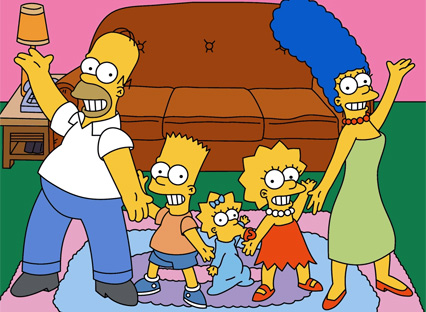The Simpsons ‘embiggens’ English with official new word
Nonsense word from iconic TV show among 850 new additions to the Merriam-Webster dictionary

A free daily email with the biggest news stories of the day – and the best features from TheWeek.com
You are now subscribed
Your newsletter sign-up was successful
After more than two decades, fans of The Simpsons will be pleased to hear that “embiggen” has finally found its way into the dictionary.
The word, which means “to make bigger or more expansive”, was among 850 new additions to the Merriam-Webster dictionary this year.
Other internet favourites, including dumpster fire (a disaster) and mansplain (to explain something to a woman in a condescending way that assumes she has no knowledge about the topic), also made the cut.
The Week
Escape your echo chamber. Get the facts behind the news, plus analysis from multiple perspectives.

Sign up for The Week's Free Newsletters
From our morning news briefing to a weekly Good News Newsletter, get the best of The Week delivered directly to your inbox.
From our morning news briefing to a weekly Good News Newsletter, get the best of The Week delivered directly to your inbox.
Embiggen was first heard on a 1996 episode of The Simpsons, in which students at Springfield Elementary find out that their town’s motto is: “A noble spirit embiggens the smallest man.”
“Embiggens? I never heard that word before I moved to Springfield,” says Bart’s teacher Mrs Krabappel, to which Lisa’s teacher, Miss Hoover replies: “I don’t know why. It’s a perfectly cromulent word.”
Supposedly, both embiggen and cromulent were the result of a dare, Business Insider reports.
“According to Simpsons lore, the showrunners challenged the episode’s writers to insert two real-sounding fake words into the script,” the website says. Both “instantly became running inside jokes among fans of the show.”
A free daily email with the biggest news stories of the day – and the best features from TheWeek.com
Embiggen isn’t the first catchphrase from the TV show to enter the official lexicon.
D’oh (to express frustration at the realisation that things have turned out badly) was added to the Oxford English dictionary in 2001, and the apathetic expression “meh” earned its place in the Collins English Dictionary a decade ago.
However, cheese-eating surrender monkey, Jebus, dollarydoos and yoink are yet to be officially recognised by lexicographers.
-
 The Olympic timekeepers keeping the Games on track
The Olympic timekeepers keeping the Games on trackUnder the Radar Swiss watchmaking giant Omega has been at the finish line of every Olympic Games for nearly 100 years
-
 Will increasing tensions with Iran boil over into war?
Will increasing tensions with Iran boil over into war?Today’s Big Question President Donald Trump has recently been threatening the country
-
 Corruption: The spy sheikh and the president
Corruption: The spy sheikh and the presidentFeature Trump is at the center of another scandal
-
 Epstein files topple law CEO, roil UK government
Epstein files topple law CEO, roil UK governmentSpeed Read Peter Mandelson, Britain’s former ambassador to the US, is caught up in the scandal
-
 Iran and US prepare to meet after skirmishes
Iran and US prepare to meet after skirmishesSpeed Read The incident comes amid heightened tensions in the Middle East
-
 Israel retrieves final hostage’s body from Gaza
Israel retrieves final hostage’s body from GazaSpeed Read The 24-year-old police officer was killed during the initial Hamas attack
-
 China’s Xi targets top general in growing purge
China’s Xi targets top general in growing purgeSpeed Read Zhang Youxia is being investigated over ‘grave violations’ of the law
-
 Panama and Canada are negotiating over a crucial copper mine
Panama and Canada are negotiating over a crucial copper mineIn the Spotlight Panama is set to make a final decision on the mine this summer
-
 Why Greenland’s natural resources are nearly impossible to mine
Why Greenland’s natural resources are nearly impossible to mineThe Explainer The country’s natural landscape makes the task extremely difficult
-
 Iran cuts internet as protests escalate
Iran cuts internet as protests escalateSpeed Reada Government buildings across the country have been set on fire
-
 US nabs ‘shadow’ tanker claimed by Russia
US nabs ‘shadow’ tanker claimed by RussiaSpeed Read The ship was one of two vessels seized by the US military